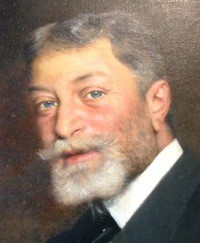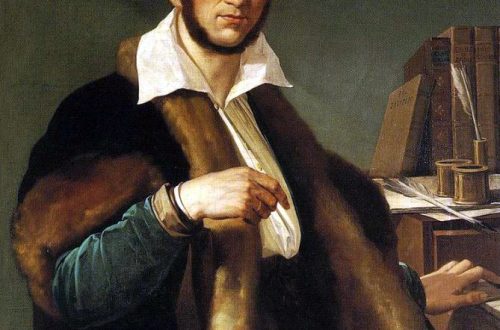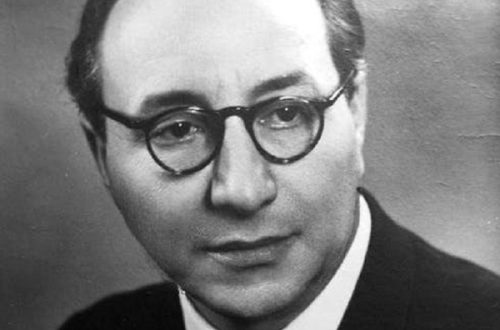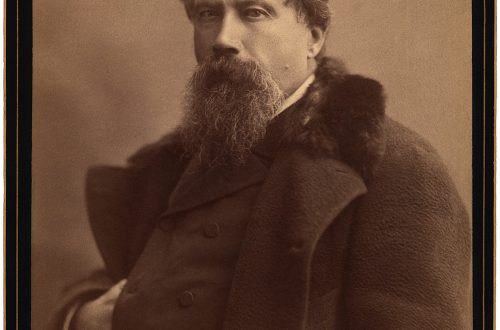
Francesco Paolo Tosti |
Francesco Paolo Tosti

The Italian composer Francesco Paolo Tosti is the subject of a long-standing, perhaps already eternal love of both singers and music lovers. The program of a solo concert of a star rarely goes without Marechiare or Dawn separates the shadow from the light, the encore performance of Tosti’s romance guarantees an enthusiastic roar from the audience, and there is nothing to say about the discs. The master’s vocal works were recorded by all outstanding singers without exception.
Not so with music criticism. Between the two world wars, two “gurus” of Italian musicology, Andrea Della Corte and Guido Pannen, published the book History of Music, in which, from all the truly immense production of Tosti (in recent years, the Ricordi publishing house has published a complete collection of romances for voice and piano in fourteen (!) volumes) very decisively saved from oblivion only one song, already mentioned by us Marechiare. The example of the masters was followed by less famous colleagues: all authors of salon music, writers of romances and songs were frankly treated with disdain, if not contempt. All of them were forgotten.
Everyone except Tostya. From aristocratic salons, his melodies smoothly moved to concert halls. Very belatedly, serious criticism also spoke about the composer from Abruzzo: in 1982, in his hometown of Ortona (province of Chieti), the National Institute of Tosti was founded, which studies his heritage.
Francesco Paolo Tosti was born on April 9, 1846. In Ortona, there was an old chapel at the Cathedral of San Tommaso. It was there that Tosti began to study music. In 1858, at the age of ten, he received a royal Bourbon scholarship, which enabled him to continue his education at the famous Conservatory of San Pietro a Majella in Naples. His teachers in composition were the outstanding masters of their time: Carlo Conti and Saverio Mercadante. A characteristic figure of conservatory life then was the “maestrino” – students who excelled in musical science, who were entrusted with teaching the younger ones. Francesco Paolo Tosti was one of them. In 1866, he received a diploma as a violinist and returned to his native Ortona, where he took the place of music director of the chapel.
In 1870, Tosti arrived in Rome, where his acquaintance with the composer Giovanni Sgambati opened the doors of musical and aristocratic salons for him. In the capital of the new, united Italy, Tosti quickly gained fame as the author of exquisite salon romances, which he often sang, accompanying himself on the piano, and as a singing teacher. The royal family also submits to the success of the maestro. Tosti becomes court singing teacher to Princess Margherita of Savoy, the future Queen of Italy.
In 1873, his collaboration with the Ricordi publishing house begins, which will later publish almost all of Tosti’s works; two years later, the Maestro visits England for the first time, where he is well known not only for his music, but also for his teacher’s art. Since 1875, Tosti has been performing here annually with concerts, and in 1880 he finally moved to London. He is entrusted with nothing less than the vocal education of Queen Victoria’s two daughters Mary and Beatrix, as well as the Duchess of Tack and Alben. He also successfully fulfills the duties of the organizer of court musical evenings: the queen’s diaries contain a lot of praise for the Italian maestro, both in this capacity and as a singer.
In the late 1880s, Tosti barely crossed the threshold of forty years, and his fame truly knows no bounds. Every published romance is an instant success. The “Londoner” from Abruzzo does not forget about his native land: he often visits Rome, Milan, Naples, as well as Francavilla, a town in the province of Chieti. His house in Francavilla is visited by Gabriele D’Annunzio, Matilde Serao, Eleonora Duse.
In London, he becomes the “patron” of compatriots who seek to penetrate the English musical environment: among them are Pietro Mascagni, Ruggiero Leoncavallo, Giacomo Puccini.
Since 1894, Tosti has been a professor at the London Royal Academy of Music. In 1908, the “House of Ricordi” celebrates the centenary of its founding, and the composition, which completes the centenary of the activity of the glorious Milanese publishing house at number 112, is “Songs of Amaranta” – four romances by Tosti on poems by D’Annunzio. In the same year, King Edward VII grants Tosti the title of baronet.
In 1912, the Maestro returns to his homeland, the last years of his life pass in the Excelsior Hotel in Rome. Francesco Paolo Tosti died in Rome on December 2, 1916.
To speak of Tostya only as the author of unforgettable, truly magical melodies, once and for all penetrating into the heart of the listener, means to give him only one of the honors he rightfully won. The composer was characterized by a penetrating mind and an absolutely clear awareness of his abilities. He did not write operas, confining himself to the sphere of chamber vocal art. But as the author of songs and romances, he turned out to be unforgettable. They brought him worldwide fame. Tostya’s music is marked by bright national originality, expressive simplicity, nobility and elegance of style. It keeps in itself the peculiarities of the atmosphere of the Neapolitan song, its deep melancholy. In addition to the indescribable melodic charm, Tosti’s works are distinguished by an impeccable knowledge of the possibilities of the human voice, naturalness, grace, an amazing balance of music and words, and exquisite taste in the choice of poetic texts. He created many romances in collaboration with famous Italian poets, Tosti also wrote songs in French and English texts. Other composers, his contemporaries, differed only in a few original works and later repeated themselves, while the music of Tostya, the author of fourteen volumes of romances, remains at an invariably high level. One pearl follows another.





